Freight brokerage—also called logistics brokerage or transportation brokerage—is the business of connecting companies that need to ship goods with the carriers that can transport them. A freight broker acts as an intermediary between shippers (the cargo owners) and freight service providers (usually trucking companies).
In the highly fragmented U.S. trucking market, where most fleets are small and spread across all fifty states, freight brokers play an indispensable role. They help shippers find reliable transport at competitive rates and help carriers keep their trucks loaded. In short, brokers are critical facilitators in the domestic supply chain, ensuring that freight moves efficiently across the country.
WHAT IS A FREIGHT BROKER?
A freight broker is a licensed, third-party intermediary that arranges transportation for shippers by matching their loads with qualified motor carriers. Rather than operating its own trucks, the broker leverages a vast carrier network—often thousands of vetted trucking companies spanning van, flatbed, reefer, and specialized equipment—to secure capacity wherever and whenever a shipper needs it.
Acting as the single point of contact, the broker solicits competitive quotes, negotiates rates, books the load, and then manages the shipment end-to-end: scheduling pickup and delivery appointments, providing real-time tracking updates, and troubleshooting delays or accessorial issues as they arise. Because an experienced broker moves freight across many lanes every day, it possesses granular market intelligence that an individual shipper typically lacks, enabling the broker to find capacity quickly and at market-competitive prices.
Our Streamlined Process
Single point of contact
Shipment-to-vehicle matching system
Vetted & exclusive carriers
Real-time monitoring & alerts
Types of Vehicles
SPRINTER VAN
ExpeditedFreight.com's expedited Sprinter vans have the capacity to meet your local, regional, or long-distance ground shipping needs. Measuring 8-12’ x 52” x 70", our carefully-selected vans have the capacity to carry loads up to 3,000 lbs.
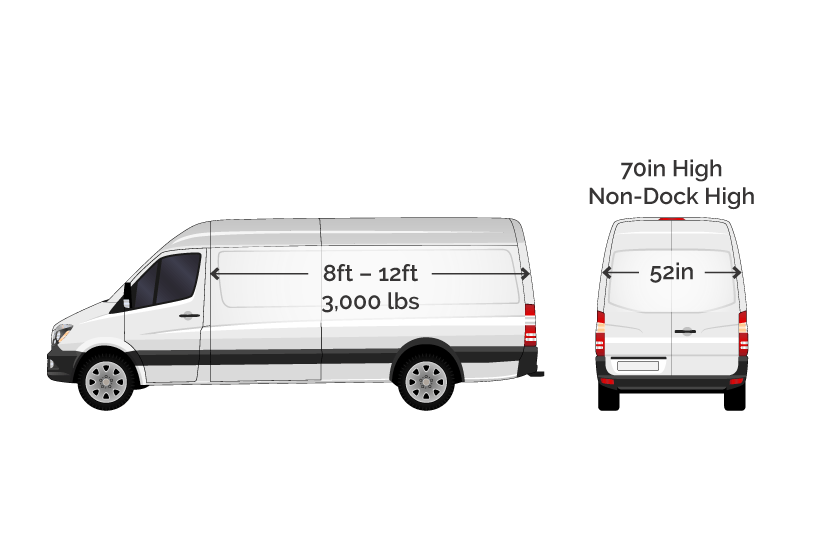
BOX TRUCK
We pride ourselves in working with trusted partners that offer carefully-vetted box trucks, from temperature-controlled vehicles to varying sizes that accommodate smaller loads. Our box trucks, or small straight trucks, measure 12-16’ x 94” x 70” and have the capacity to carry up to 5,000 pounds.
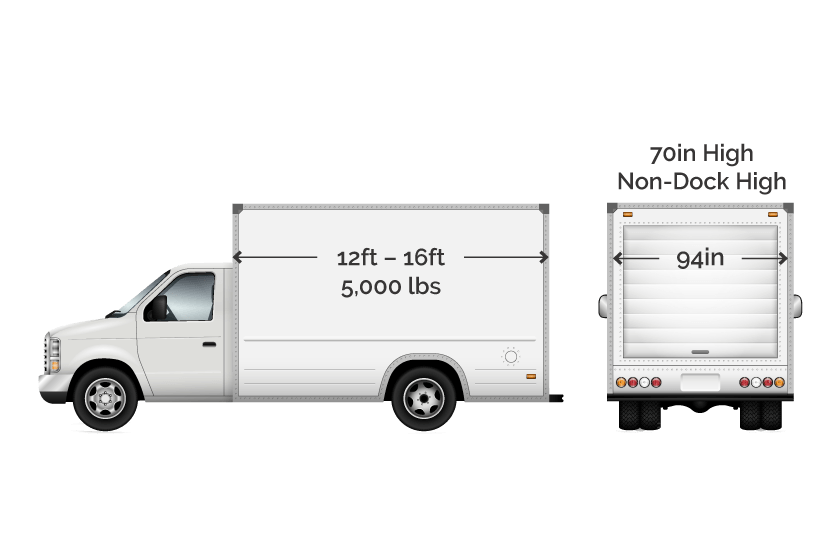
STRAIGHT TRUCK
Measuring 22-26’ x 96” x 96”, our straight trucks can carry loads up to 9,000 pounds. Our large straight truck services offer focused logistics, professional drivers, and deeply-experienced expeditors to get your delivery where it needs to go.
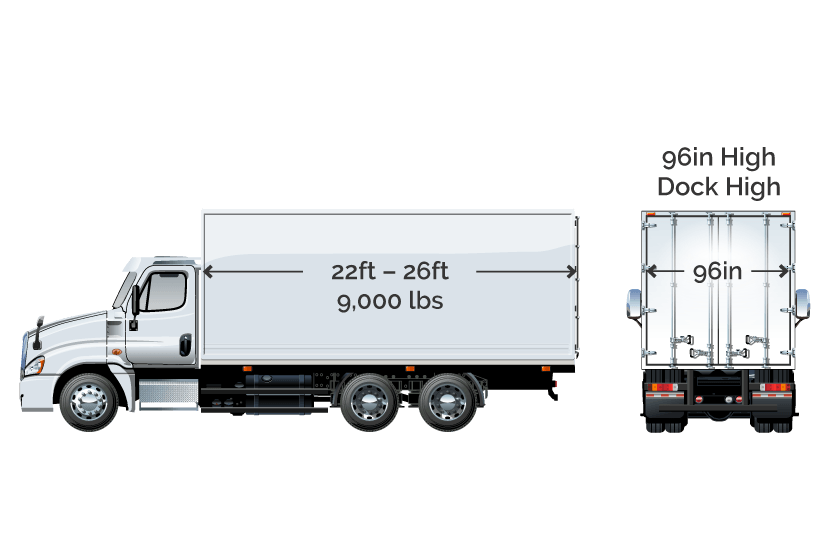
HOT SHOT TRUCK
We'll happily arrange for your freight to be transported via hot shot trucking services. We've proudly partnered with hot shot trucking providers across North America to give you access to carefully-vetted ground delivery vehicles for your time-critical freight.
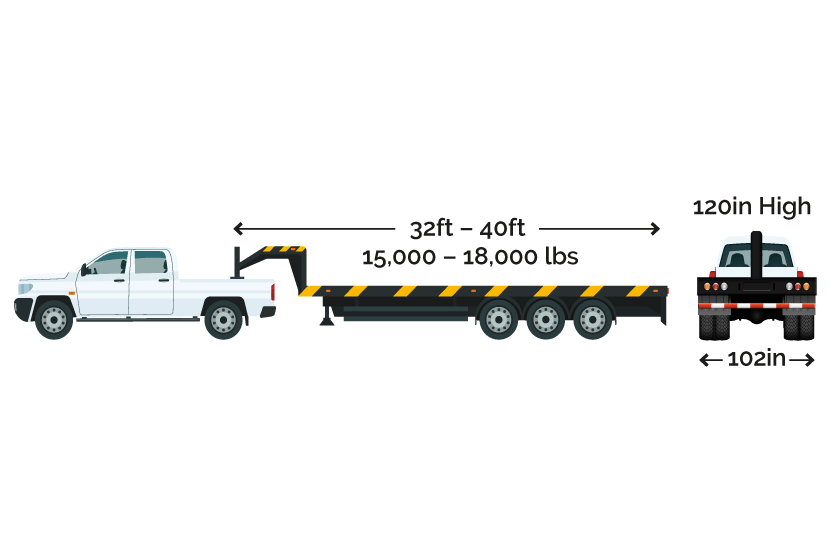
53' DRY VAN
Our fleet of 53-Ft dry vans can carry loads up to 42,000 pounds. Measuring 53’ x 99” x 102”, these carefully-vetted vehicles will ensure your time-sensitive freight arrives at its destination safely.
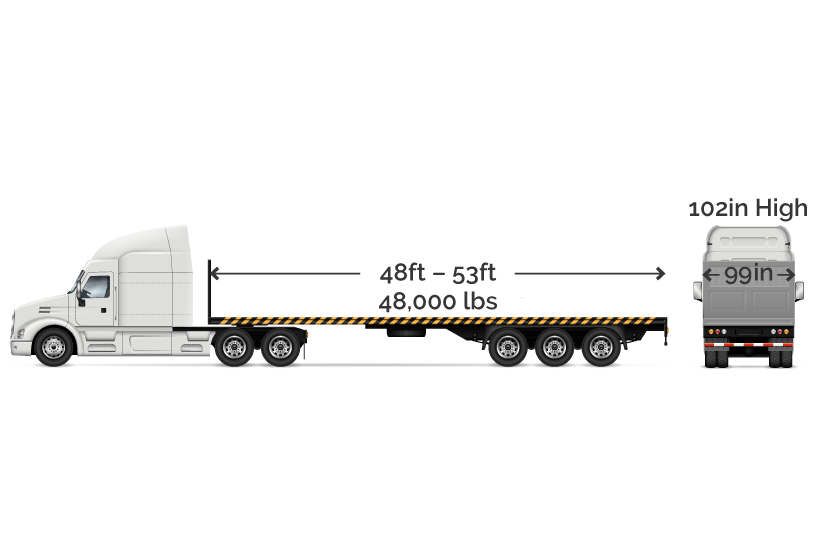
FULL FLATBED
ExpeditedFreight.com's full flat bed vehicles can accommodate wide or mega-size loads, such as specialized equipment machinery of all weights and sizes. Measuring 48-53’ x 102” x 102”, our fleet of full flat bed vehicles can carry freight of up to 48,000 pounds.

TALK TO AN EXPEDITOR NOW
Get a Free Freight Quote Now

The History of the Expedited Freight Industry
Expedited freight evolved to meet urgent shipping needs that standard service could not satisfy. Its roots trace back to the 1970s oil crisis, when energy companies needed parts delivered to remote fields immediately to prevent costly production shutdowns. Independent drivers with pickup trucks and gooseneck trailers stepped in to haul critical equipment at a moment’s notice, sometimes driving through the night to keep wells pumping.
Throughout the 1980s, manufacturers in industries such as automotive, construction, and aerospace adopted just-in-time inventory practices. Because these lean inventories left little room for supply disruptions, demand rose for carriers that could deliver parts and materials on extremely tight deadlines. Technology advances—first pagers and CB radios, then cell phones and GPS—further accelerated the viability of hot shot operations by enabling real-time communication and tracking.
Over time, these ad-hoc drivers evolved into specialized expedited carriers operating cargo vans, straight trucks, and team-driver tractor-trailers. Freight brokers recognized the opportunity and began building expedited divisions or entire brokerages dedicated to urgent freight. Today, expedited brokerage is a well-established niche serving industries that cannot tolerate downtime, from healthcare to disaster relief.
Why Use a Freight Broker?
Freight brokers are integral to the smooth functioning of U.S. supply chains. By combining industry expertise, carrier relationships, and regulatory knowledge, they simplify the complex task of transporting goods across a vast and dynamic marketplace. Whether you need to cut transportation costs, secure reliable capacity, or arrange an urgent hot shot delivery, partnering with the right freight brokerage can be a strategic advantage. Evaluate the different brokerage models, vet potential partners carefully, and leverage their capabilities to keep your freight—and your business—moving forward.

Time and Cost Savings
Managing expedited freight services in-house can consume considerable time and administrative resources. Brokers handle carrier sourcing, rate negotiations, scheduling, and problem resolution, freeing logistics teams to focus on core business functions. Because brokers leverage aggregated freight volume, they often secure lower rates than a single shipper could negotiate independently. Their experience also helps avoid costly accessorial charges and detention fees.

Industry Expertise
Brokers track seasonal capacity swings, regulatory changes, and lane-rate trends that affect shipping costs and service levels. They advise on the best mode (LTL, FTL, intermodal, air) and timing for each shipment, and they coach shippers on packaging, documentation, and compliance requirements. For complex moves—oversize loads, hazardous materials, or temperature-controlled freight—the broker’s specialized knowledge can be invaluable.

Access to a Diverse Carrier Network
A typical shipper might know a handful of trusted carriers; a large brokerage may work with thousands. This carrier diversity ensures capacity even during peak seasons or market disruptions. Brokers vet carriers for safety, insurance, and service performance, giving shippers access to qualified trucks that might otherwise be out of reach.

Customized Logistics Solutions
Because brokers serve many industries and modes, they can craft flexible solutions—dedicated trucks, air charter service, multi-modal combinations, cross-docking, warehousing, or expedited team service—to solve unique supply-chain challenges. Rather than forcing freight into a one-size-fits-all model, a broker tailors capacity and routing to each customer’s requirements.

How to Find a Freight Broker Near Me
Search Online
Start with a targeted web search using phrases such as “freight broker near me,” “truckload brokerage in [city/state],” or “LTL broker for [commodity].” Search engines will surface company websites, Google Business profiles, and directory listings that reveal brokers operating in your region. Pay close attention to service descriptions: many firms highlight the geographic areas, equipment types (van, flatbed, reefer), and specialized services (expedited, oversize, hazmat) they support. This helps you quickly determine whether a broker’s core strengths align with your freight mix and lanes.
Beyond generic search results, tap logistics-specific directories and marketplace platforms. Sites maintained by trade associations, 3PL marketplaces, and transportation management-software vendors often allow shippers to filter brokers by location, commodity, or mode. Because these listings are curated for industry professionals, they can save time by excluding unlicensed or inactive companies. Bookmark the brokers that match your criteria, then move on to deeper vetting in the next steps.
Ask for Recommendations
After compiling an online short list, turn to your professional network for firsthand feedback. Reach out to peers at shippers in similar industries, preferred carriers, or suppliers who routinely coordinate freight. They can share which brokers consistently hit appointment windows, provide honest rate forecasts, and resolve inevitable issues without drama. Because logistics is a relationship-driven business, a personal endorsement often signals that the broker values transparency and long-term partnerships over one-off transactions.
Trade associations, local chambers of commerce, and industry conferences also offer rich referral channels. Attending a regional Transportation Club luncheon or a supply-chain roundtable gives you the chance to ask members which brokers they rely on for specific lanes or equipment. Word-of-mouth referrals often highlight smaller agent-model brokerages that deliver white-glove service but may not rank high in generic web searches. Add any well-regarded names from these conversations to your candidate list.
Read Reviews and Ratings
With a pool of prospective brokers in hand, scrutinize their public reputations. Google Reviews and Yelp-style ratings provide unfiltered customer commentary—sometimes glowing, sometimes brutally honest. Look for patterns rather than isolated incidents: repeated complaints about missed appointments or surprise accessorial charges are red flags, whereas multiple mentions of proactive communication are encouraging. For a broader performance snapshot, check Better Business Bureau scores and see whether any complaints remain unresolved.
Case studies and testimonials on a broker’s own website can be helpful, provided you read between the lines. Strong case studies will cite specific KPIs—on-time delivery percentages, cost savings achieved, or claims ratios—that demonstrate measurable value. If the broker serves your industry, look for examples involving similar cargo or lanes. Pair these self-published success stories with independent reviews to create a balanced, credible picture of each broker’s service quality.
Check Licensing and Insurance
Even a broker with stellar reviews must prove it is legally authorized to arrange transportation. Use the Federal Motor Carrier Safety Administration’s public “Licensing & Insurance” database to verify the company’s MC number and confirm that its broker authority is active (status: “Authorized”). The same query shows whether the broker’s $75,000 surety bond is on file and current—critical financial protection in the event of payment disputes or carrier nonperformance. If anything appears inactive or lapsed, strike that broker from consideration.
Request proof of contingent cargo and general liability insurance as well. While a broker does not physically handle freight, contingent coverage shields you if a carrier’s primary insurance fails to honor a claim. Reputable brokers readily provide certificates showing coverage limits and policy dates. They should also outline their carrier-vetting process—how they monitor carriers’ DOT authority, safety scores, and cargo coverage—demonstrating a proactive approach to risk management. By confirming these credentials before tendering your first load, you safeguard your freight, your budget, and your reputation.
TALK TO AN EXPEDITOR NOW
Get an Expedited Freight Quote for Your Time-Critical Shipping Needs
Freight Broker Services
A freight broker is a licensed intermediary who arranges transportation on behalf of shippers. Rather than owning trucks or warehouses, brokers leverage a wide-ranging network of carriers to move their clients’ freight. Their core responsibilities fall into five main buckets:
Connecting Shippers and Carriers
Collecting Quotes and Negotiating Rates
Coordinating Pickups and Deliveries
Broker vs. Dispatcher

Frequently Asked Questions
What is expedited freight shipping?
How is expedited freight different from standard shipping?
When should I use expedited freight services?
What modes of transportation are used for expedited freight?
What is expedited ground shipping?
How fast can expedited ground freight be delivered?
What is expedited air freight?
What is an air charter service for freight?
When would I need an air charter instead of standard air cargo?
What is hot shot trucking in expedited shipping?
Related Blog Posts

Dedicated Freight
Dedicated freight is a trucking solution in which a carrier allocates a fixed fleet of trucks and drivers exclusively to a single shipper under a long-term agreement. In this model the carrier “dedicates” equipment and personnel to the customer’s lanes or regions on a multi-year contract.

Expedited Freight Quote
A freight quote is an estimate provided by a carrier or third-party logistics provider that outlines the cost of transporting goods from one location to another. It’s based on a variety of factors, including the weight and dimensions of the shipment, the distance between pickup and delivery locations, and the chosen method of transportation.

Logistics Trucking Company
Ensuring these goods reach their destinations efficiently is a complex task – one that logistics trucking companies specialize in. These firms help businesses coordinate shipments, manage transportation, and streamline the flow of products. This article explains what a logistics trucking company is, the advantages of hiring one, common challenges in the industry, how to choose the right provider, and emerging trends shaping the future of...

Obstacles & Opportunities: 5 Greatest Challenges In Expedited Trucking
Growing pains are a reality in every industry, and expedited freight is no exception. As the market evolves and public policy changes, trucking companies of all stripes must adapt or risk going out of business. The American Transport Research Institute (ATRI) recently published a report on the challenges that carriers must deal with going forward.

Tesla, Navista Compete To Unveil The Leading Electric Trucks
Tesla has long billed itself as the leader in advanced and sustainable vehicles. But when it comes to electric trucks, the company is at risk of being upstaged.
Air Cargo Charter
Air cargo charters are designed for flexibility and urgency, capable of mobilizing aircraft on short notice to meet tight deadlines or navigate around disruptions like natural disasters, supply chain bottlenecks, or geopolitical challenges.
THE RISE OF EXPEDITED FREIGHT JOBS
In today's fast-paced logistics world, getting things delivered on time is very important for both businesses and consumers. With the increasing demand for rapid delivery services, expedited freight has become an essential component of the supply chain.
Industries We Serve
Modern day hot shot trucking provides the speed and exclusivity you need to meet the most demanding and time-sensitive shipping requirements. We use every resource, avenue, and channel available to ship your freight by ground or air. Designed specifically to address supply and distribution problems that arise without warning, hotshot trucking tactics involve coordinating a network of carriers in a variety of locations. By calling on the vehicles closest to your supply or distribution points, hotshot brokers can fill any sudden gaps in your supply network almost as soon as they happen. This minimizes the disruption to your business and allows you to quickly return to ordinary operations, weathering the storm without skipping a beat.
Automotive
The automotive supply chain already has significant challenges. Don’t let malfunctioning equipment stop the production line. Step on the gas with HotShotTrucking.com’s suite of services that will get you back in the fast lane. With HotShotTrucking.com, companies are devising shipping strategies to swiftly deliver critical parts and equipment — whether it's ground expedite service with sprinter vans, box trucks and 53-foot tractor trailers or air freight and air cargo.
Aviation & Aerospace
Every moment a commercial airliner sits on the ground, it costs an airline money. Expedited freight services by HotShotTrucking.com can get you back in the air with prompt delivery of parts and equipment throughout North America. We are equipped with the expertise to navigate the complexities of shipping jet engines and other types of loads, and our network of hot shot drivers has extensive experience transporting aviation assets.
Construction
One shipping delay can snowball and cause delays throughout your entire project. You need an experienced 3PL provider who understands the construction industry and has the logistical reach to deliver your freight on time, anywhere. That 3PL partner is HotShotTrucking.com. Whether in the air or on the ground via truck and trailer, we can connect companies to expedited freight services for the prompt delivery of parts and equipment throughout North America.
Mining & Metals
From cranes to chemicals to excavators to conveyor belts, HotShotTrucking.com has the experience and industry know-how required for shipping sensitive, oversized, and hazardous equipment. Third-party hot shot trucking and logistics providers such as HotShotTrucking.com specialize in devising and implementing innovative shipping solutions, ensuring mines can swiftly return to operation. We’ll pick up your shipment, deliver it to the airport and receive it at the other end – providing hand-carried service as necessary or required.
Manufacturing
Every moment a manufacturing facility or factory sits idle costs a company money because of the high costs involved. With many manufacturers building to only just-in-time production rates, any disruption threatens parts and vehicle inventories. This is where the speed and expertise of freight services from HotShotTrucking.com can make a difference throughout the entire manufacturing supply chain. We do all the logistical legwork to find the optimal solution for your job, whether it's an exclusive air charter or expedited ground shipping.
Telecommunications
From servers to cell towers, information, voice, and data must flow to keep businesses, production, and the public online and connected. When equipment goes dark, depend on HotShotTrucking.com to get your systems flashing green again. This is where the speed and experience of trucking and freight services from HotShotTrucking.com can help. Our hot shot truck network excels at the prompt delivery of parts and equipment throughout North America.
Oil & Gas
The oil and gas industry faces challenging conditions in offshore and onshore oil rigs, often in remote locations with limited infrastructure. Don’t let oil pumps or pipelines sit idle waiting for equipment. By having the right plans, parts, people, and logistics partner like HotShotTrucking.com, you can effectively mitigate plant or pump downtime, unscheduled disruptions, and equipment failures.
Cost of Urgent Shipping
Which of our specialized shipping services best fits your needs?
Blog and Resource Center
How AirFreight.com Solved a PGA Tour Shipping Emergency
Learn how AirFreight.com located a lost shipment and helped save the PGA Golf Tour.
How AirFreight.com Saved The Farm By Solving A Major Shipping Delay
Learn how we saved a Montana-based artisanal farm thousands of dollars by expediting a shipment of perishable goods.
Expedited Shipping Vendor Comparison
We’ve done the research for you. This vendor comparison sheet breaks down how AirFreight.com stacks up against the competition.

talk to an expeditor now
Get a Quote in Minutes for Your Time Critical Freight Needs
GET A QUOTE

